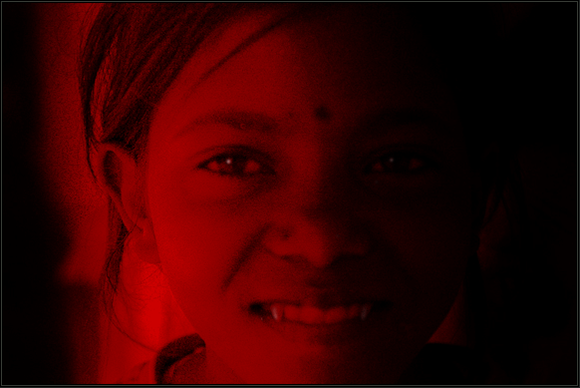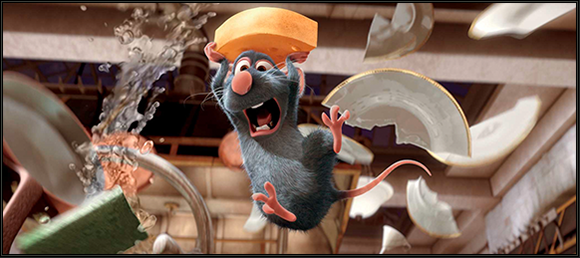She was a beautiful beggar child of about seven, with a baby on her hip. She had followed us down the street for blocks and blocks, as we dodged traffic and stepped over cow dung, climbed over rubble and leapt across open sewers, and all the while she chanted, over and over and over again:
“No mama, no daddy, food, baby…”
I’d been turning as we walked, and saying things like:
“Neh, neh,” or, “No money, I have no money.”
While Phil had been saying:
“Come on, give her a little something. Just look how cute she is.”
This is a game Phil likes to play. He keeps hoping to replicate that moment in a Rajasthani village where, after handing out rupees and candy, I was swarmed by a prehensile knot of rabid nine-year old schoolgirls, pulling at my handbag and scratching at my arms while crying theatrically that one girl had gotten something that another didn’t. Phil witnessed all this from the safe distance of a camel’s hump, and still doesn’t believe I was actually scared.
Right now, Phil and I are in NOIDA decompressing from our own busy weeks, and waiting for our flight back to Bangalore. We have left the hotel, because there are only so many odd movies from the ’90s that one can watch, and unable to choke down more spicy vegetable mush, we are hunting the urban landscape for a KFC.
We come here once every few months for Phil to work at the local Adobe office. NOIDA is a stinking high-tech suburb of Delhi; a mean and ugly place that has only gotten meaner and uglier since a big outsourcing spaceship crashed into it a few years back. The word NOIDA isn’t even a name, but an acronym that stands for “New Okhla Industrial Development Authority.” The city is divided into sectors, numbered for the order in which they were built, rather than the logical order that one might move through them. This neighborhood is a filthy rabbit warren of crime, poverty and sewer gas; this boat hasn’t risen with the new tide of Indian prosperity. Which, I’m starting to suspect, is pure myth.
“No mama, no daddy. No mama, no daddy. Food. Baby.
“Neh. Neh. No money.”
So far, NOIDA is the only area of India where I have felt unsafe: as we weave through the streets the men look at me like I’m an exotic fruit they want to squeeze or take a bite of. Their gawking is only slightly tempered by Phil’s presence, even though Indians regularly mistake him for a WWF wrestler known as The Undertaker. On our last visit here we had to leave a market in a hurry because a mob was forming around us, but not before someone managed to grab my ass, though Phil was standing right next to me. Why, we both wonder, in this culture of propriety and repression, is it okay to unabashedly leer at another man’s wife? Or do white girls have such a bad reputation over here that they assume the tall guy is my pimp?
And then there are the women. Wait… what women? There are no women here. Nothing but men, massive amounts of men in bell-bottom pants that are too tight and pulled up too high, and the embroidery… oh, God, the embroidery! The fact that women are rarely seen here tells me the area is old school Hindu conservative, a place where women are kept home “for their own protection.” To be female in this country is to be someone’s property. A white female walking down a street in India is porn to men, and to beggar children, a mark.
“No mama, no daddy. No mama, no daddy. Food. Baby.”
“Neh. Neh. No money.”
I am lying. I have money. Small bills in fact, convenient for handing out in situations such as these, but today I am not doing it. If I thought for a minute that she could possibly understand, or that her English vocabulary extended beyond “No mama, no daddy, food, baby,” I would try to explain it to her. I want to tell her that I know it isn’t her fault and that I love children and that the fact that this is her childhood breaks my heart. I want to explain that I’ve seen Slumdog Millionaire and I know that she is doing someone else’s bidding.
In these past four months we’ve approached this beggar-child issue in a number of ways, and pretty much all of them have been disastrous. When we’ve given money to one of the grimy little cherubs we’ve been mobbed, surrounded by ten more, their parents and grandparents, all with hands outstretched asking for more, more, more. I’ve given them food off my plate and bracelets off my arms. We laughed when they stole Phil’s Coca-Cola and drank it on the other side of the street. We’ve let them walk us to the market and bought them bags of dhal and rice and oil, only to find they later took it back to the store and got cash. I’ve been scratched and clawed and tormented by their sad chanting.
“No mama, no daddy, food, baby.”
Phil walks slightly faster, and I try to calm myself by pretending I’m a Buddhist. I struggle to exercise compassion, but then… then, she starts mimicking me:
“Please, stop following me !”
“Please stop following me !”
Phil giggles. The big brother in him can’t help it.
“I am not giving you money. Go away !”
“I am not giving you money. Go away !”
The girl giggles, because Phil giggled.
“And you stop laughing !”
“And you stop laughing !”
We run across the street and step into a shop, trying to shake her. She sticks to my heels, and I get angrier and angrier. I know she is just a child, doing only what she has been taught to do. I know that her life is hopelessly brutal and all roads for her are, and will continue to be, blocked. And underneath her skilled, though infuriating behavior, she is a child, an innocent, a human who deserves a clean place to sleep, and food to eat. She deserves an education. And a bath.
“No mama, no daddy. Food. Baby.”
“Leave me the hell alone !” I shout.
“Leave me the hell alone !” she shouts back, then giggles, again.
I am furious with her parents, or whoever has put her up to this. I am appalled that the government of this vast country, that claims to be stepping into the role of international business leader, allows this to go on. It is not this child that I am mad at. I am furious at both the utter hopelessness of India, and my helplessness in the face of it.
Over these past four months my heartstrings have been stretched out from abuse and right now I am tired – I’ve been sick with a wicked cold and food poisoning and I am exhausted from three all-night bus rides in one week. I’ve peed in the middle of the highway in the middle of the night. I’ve listened to people vomiting all around me on a hair-raising fifteen-hour bus journey. Rarely in these past four months have I looked out a window and not seen a man with his willie in hand, peeing. I’m tried of watching people crap in open fields and on roadsides in plain sight. And I am tired of being played by beggar children and I worry about what I’ll become after eight more months of this.
I know there must be an explanation for the pathetic state of this country, but I’m too new here to know whom or what to blame it on; this whole place seems broken eight hundred ways from Tuesday. Still, there is a part of me that loves it here, and when I find a way that I can help, I will; but I could empty out my bank account right now and give to every beggar I see and it wouldn’t make the least dent in any of their lives.
“Please, leave me alone, I can’t help you,” I say.
“Please, leave me alone, I…”
I snap. I turn on my heel and bend down and look her in the eyes, and start raving, a crazy screeching white lady:
“Go away! Leave me alone! Go! Stop following me! LEAVE ME THE HELL ALONE !!”
A cascade of unprintable swearwords streams from my mouth and swirls around this dirty little girl like litter. I can’t stop screaming. I fear a mob is going to gather, tear me limb from limb, and I fear that I deserve it. I’m thankful that the girl has no idea what I’m saying, but a local man passing us on the street clearly does, and he whispers something to the girl, something magic in Hindi, that finally makes her go away.
Tears well in my eyes and I am unhinged in a way that only India can do to me.
Even big brother no longer thinks this is funny; Phil grabs my hand and pulls me away.
“Come on, crazy white lady. There’s a KFC right up here.”

